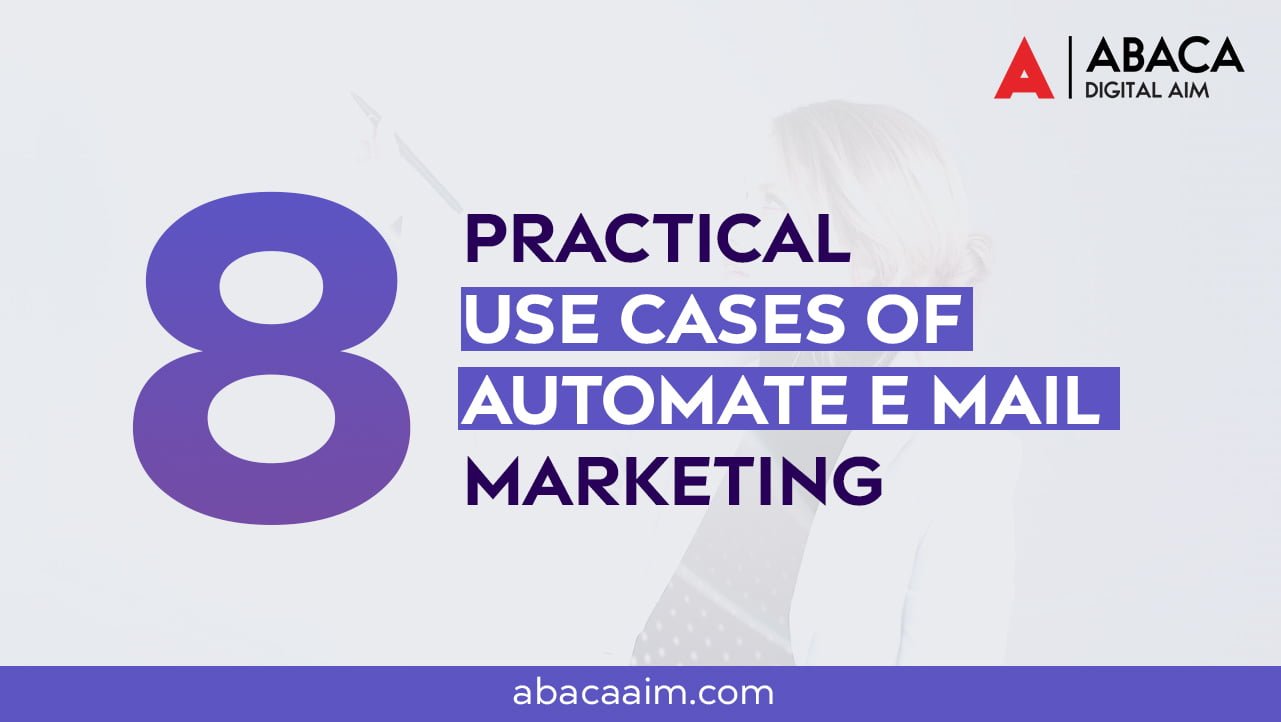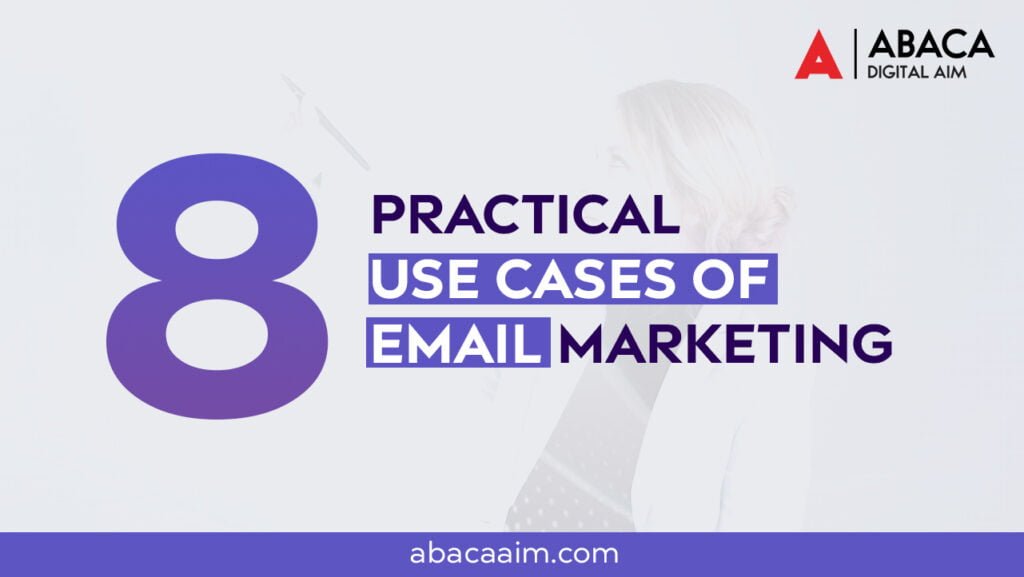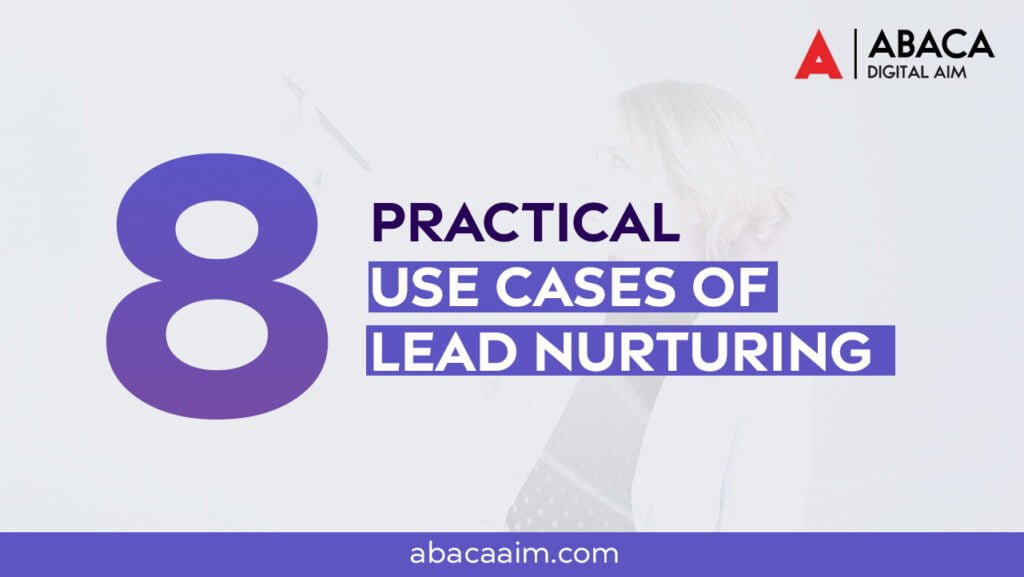
Are you ready to revolutionize your sales and marketing efforts? Automated marketing platforms can be your secret weapon in this digital age. From streamlining tasks to boosting sales, these platforms have the power to take your business to new heights. In this article, we’ll explore eight fantastic use cases to help you get the most out of your automated marketing platform. Let’s dive in!

Say goodbye to manually crafting and sending individual email campaigns to your subscribers. With automated email marketing platforms, you’re in for a game-changer. These platforms allow you to effortlessly send personalized emails to your customers, saving you time and making your marketing efforts more efficient.
One of the key benefits of automation is the ability to segment your audience effectively. You can categorize your subscribers based on various criteria, such as their interests, behavior, or demographics. This segmentation ensures that your emails reach the right people with relevant content.
Moreover, automated triggers can be set up to respond to specific actions your subscribers take. For instance, when customers abandon their shopping cart, an automated email reminder can be sent to encourage them to complete their purchase.
By adopting automated email marketing, you’ll witness a significant boost in engagement rates. Your subscribers will receive content that resonates with their needs, leading to higher open rates, click-through rates, and conversions. It’s a win-win situation for you and your customers!

In the world of sales and marketing, every lead is precious. To nurture leads effectively, you must provide them with the right information at the right time. This is where automated marketing platforms come to your rescue, acting as a personal sales assistant working around the clock.
Automated lead nurturing involves setting up workflows that send targeted content to leads based on their behavior and preferences. When a lead interacts with your website or engages with your emails, the platform can automatically trigger follow-up emails, providing them with more relevant content.
As leads progress through your sales funnel, the automation ensures they receive content that moves them closer to purchasing. This process not only saves you time but also increases the likelihood of converting leads into paying customers.
With automated lead nurturing, you can track and analyze the interactions of each lead, gaining insights into their interests and intent. This invaluable data helps you tailor your marketing efforts even further, making it a win-win for your business and potential customers.
Social media has become an integral part of any business’s online presence. Maintaining an active and engaging social media presence is crucial, but it can be a daunting task without the right tools. Automated marketing platforms rescue you by allowing you to enhance your social media management.
With automation, you can schedule posts in advance, ensuring a consistent and timely presence on your chosen platforms. This relieves the stress of posting in real time, allowing you to plan and execute your social media strategy more efficiently.
Tracking engagement metrics is another advantage of using these platforms. You can easily monitor likes, shares, comments, and other interactions with your posts. This data provides valuable insights into what content is resonating with your audience and what isn’t, enabling you to adjust your strategy accordingly.
Furthermore, automated marketing platforms can help you streamline your Facebook sales and marketing efforts. You can create and schedule posts, run targeted ads, and even track the performance of your Facebook campaigns – all within the platform. This means that your social media game just got stronger, and your business can effectively engage with your audience and drive more sales.
Use Case 4: Personalize Customer Interactions
Customers today expect personalization from the brands they engage with. Automated marketing platforms offer you the tools to create tailored experiences that make your customers feel like you truly understand their needs and preferences.
These platforms allow you to collect and analyze data about your customers, from their browsing behavior to their purchase history. With this data in hand, you can create personalized experiences at every touchpoint. For example, you can provide product recommendations based on a customer’s past purchases or offer content suggestions related to their interests.
By delivering personalized content and recommendations, your customers will feel you know them personally. This enhances their overall experience with your brand, increases engagement, and fosters customer loyalty. As a result, you’ll see higher conversion rates and customer retention – a significant win for your business.
Use Case 5: Optimize Content Marketing
In the digital age, content is king. However, creating and distributing content can be a time-consuming task. Automated marketing platforms are here to help you rule the content kingdom more efficiently.
These platforms can analyze the performance of your content, providing you with insights into what works and what doesn’t. You can track metrics like page views, click-through rates, and social shares, helping you identify your most successful content pieces.
Additionally, automated marketing platforms can suggest improvements based on their collected data. For instance, if a blog post drives more traffic to your website, the platform might recommend creating similar content to capitalize on its success.
One of the most significant advantages is the automation of content distribution. The platform can schedule and post your content to various channels, ensuring it reaches your target audience. This approach saves you time and allows you to maintain a consistent content strategy, driving more traffic and engagement without manual intervention.
Use Case 6: Streamline Lead Scoring
Identifying and prioritizing hot leads is crucial for any business. Automated marketing platforms utilize lead scoring to rank your prospects based on their actions and interactions with your brand.
Lead scoring assigns a numerical value to each lead, indicating their level of interest and engagement. For example, a lead who has visited your website multiple times downloaded a whitepaper, and engaged with your emails might receive a high lead score.
The beauty of this process is that your sales team can focus on leads with the highest scores, as these leads are more likely to convert. This not only saves time but also increases the efficiency of your sales process, leading to quicker deal closures and increased revenue.
Lead scoring helps your sales team work smarter, not harder. By prioritizing leads that have demonstrated genuine interest, you can allocate your resources more effectively and maximize your sales efforts.
Use Case 7: Convert Abandoned Carts
Cart abandonment is a common challenge for e-commerce businesses. Many customers add products to their shopping carts but must complete the purchase. Automated marketing platforms can step in as a virtual salesperson, gently nudging these potential customers to return and complete their transactions.
These platforms can be set up to send targeted reminders to users who have left items in their carts. These reminders often include incentives or special offers to motivate customers to finalize their purchases.
For instance, if a customer abandons a cart with an expensive item, an automated email can be triggered to offer a limited-time discount or free shipping, encouraging them to complete the purchase. This tactic is highly effective in recovering lost revenue and turning potential customers into paying ones.
The beauty of cart abandonment recovery through automation is that it works round the clock, increasing your chances of converting these leads into sales, even while sleeping.
Use Case 8: Track and Analyze Results
The famous adage “You can’t improve what you don’t measure” holds in the marketing world. Automated marketing platforms provide you with in-depth analytics to track and analyze the results of your campaigns.
By monitoring the performance of your marketing efforts, you can gain valuable insights into what’s working and what needs improvement. These platforms offer a wealth of data, from open rates and click-through rates for emails to engagement metrics for social media posts.
Analyzing this data lets you make data-driven decisions and refine your marketing strategies. If a specific email campaign performs exceptionally well, you can replicate its success in future campaigns.
To Wrap Up
Automated marketing platforms are the future of sales and marketing. They simplify your processes, save time, and enhance customer experiences. With the power to automate email marketing, improve lead nurturing, enhance social media management, and personalize customer interactions, these platforms are a must-have for any business.
Content marketing and lead scoring are easy, while abandoned carts can be effectively converted into sales. Lastly, tracking and analyzing results ensures you’re always on the path to improvement.
So, whether you’re a small business owner or a marketing guru, it’s time to harness the potential of automated marketing platforms. Take your marketing to the next level and promote AIM as a complete B2B automated marketing platform.